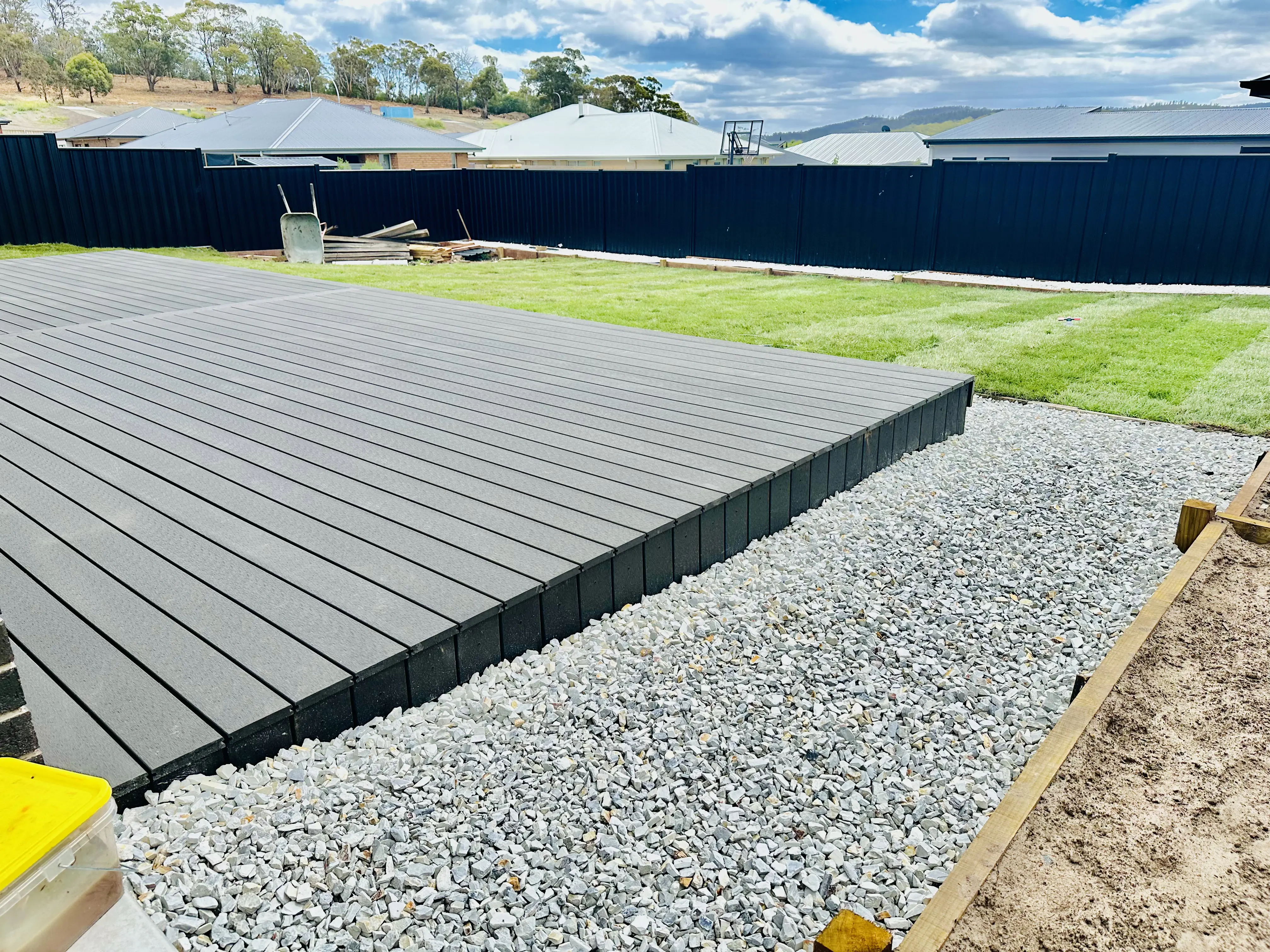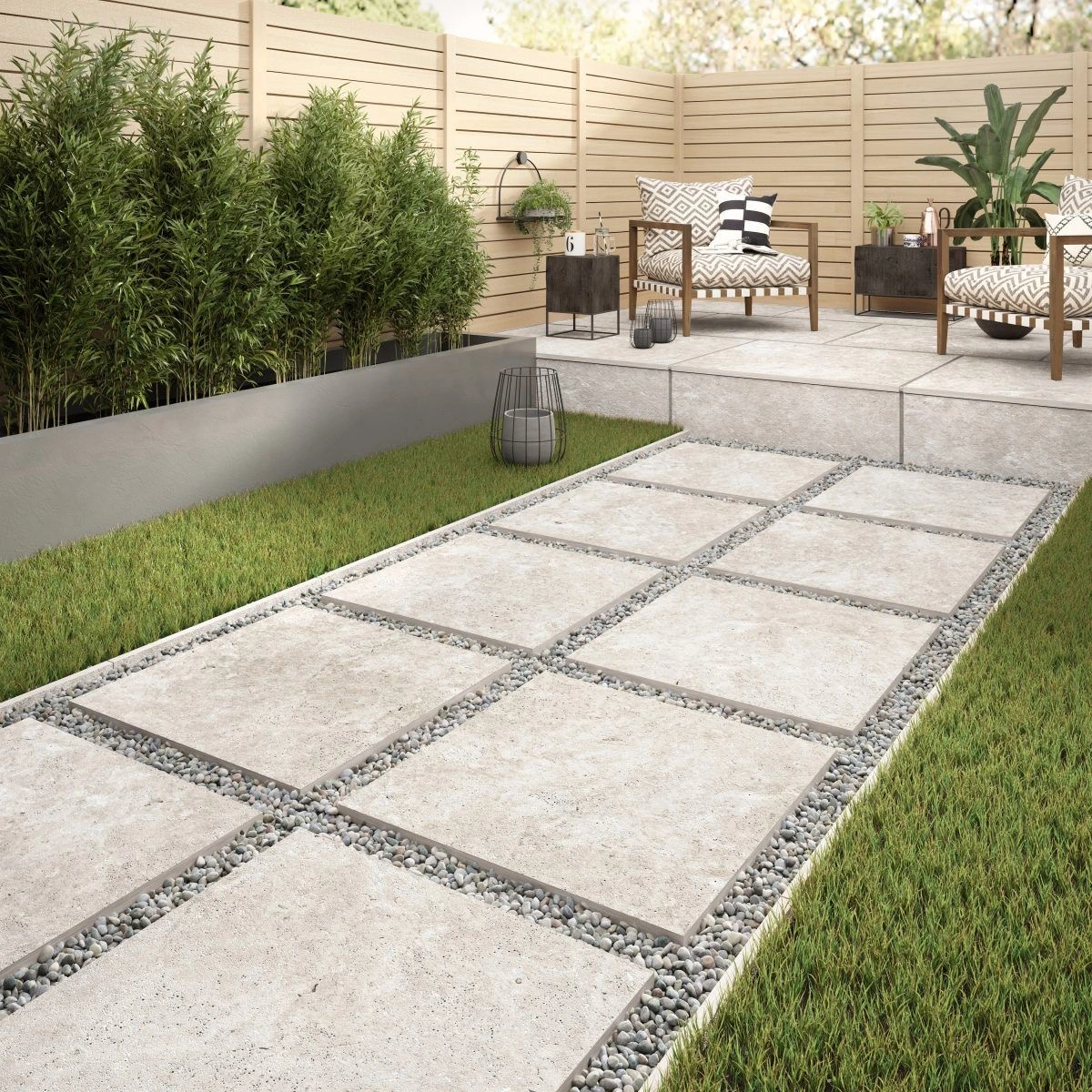Q1: Which decking material requires the least maintenance?
Composite decking is the winner—no oiling, staining, or sanding needed.
Melbourne’s famously unpredictable climate—sunshine one moment, rain the next—can be tough on outdoor structures, especially decks. Whether you’re building a new deck or upgrading an existing one, choosing the right decking material is critical for longevity, comfort, and aesthetics.
This guide explores the best decking materials suited for Melbourne’s unique weather, helping you make an informed decision that balances style, durability, and maintenance.
Melbourne’s climate features:
These conditions can cause wood to crack, warp, fade, and rot—making your choice of decking material crucial for a long-lasting outdoor area.
Why it’s great for Melbourne:
Merbau is naturally oily and dense, making it highly resistant to termites, rot, and weather fluctuations. It handles Melbourne’s moisture and sun well.
Keep in mind:
Merbau can bleed tannins, especially when wet, so sealing and careful installation are important—especially near paving or pools.
This Australian native hardwood is known for its natural fire resistance (great for bushfire zones) and durability. It’s perfect for coastal Melbourne suburbs that experience wind and salt air.
Tip: Needs annual oiling to maintain colour and prevent graying.
Best brands in Australia: Trex, ModWood, Ekodeck
Treated pine is one of the most budget-friendly decking options and can be stained or painted any colour. However, it’s softer and more prone to warping in Melbourne’s fluctuating conditions.
Use it if: You’re on a tight budget and can commit to regular sealing.
Blackbutt is a locally sourced Australian hardwood, making it sustainable and well-suited to Melbourne’s climate. It’s also BAL-29 fire rated, a requirement in some areas.
Resistant to rust, rot, pests, and UV damage, aluminium is a great low-maintenance option. It stays cool underfoot and doesn’t warp—ideal for decks exposed to full sun.
Note: More expensive and less traditional-looking than timber.
While durability is key, your decking also contributes to your home’s aesthetic and resale value. When selecting materials, consider:


Ensure good airflow under your deck to prevent moisture build-up and timber decay.
Proper drainage is essential to avoid water pooling, especially in wetter Melbourne months.
Even the best materials benefit from regular maintenance — cleaning, oiling, or staining to maintain appearance and structural integrity.
Concerned about environmental impact? Look for:
Eco-friendly decks not only reduce your footprint but may also increase buyer interest if you plan to sell.
Composite decking is the winner—no oiling, staining, or sanding needed.
Yes—especially timber. Use
Composite or aluminium decking — they’re water-resistant and don’t splinter.
Oiling or sealing is recommended every 6–12 months, depending on exposure.
Yes, if you want a long-term, low-maintenance solution. The upfront cost is higher, but savings over time can balance it out.